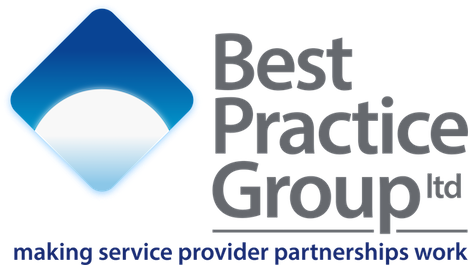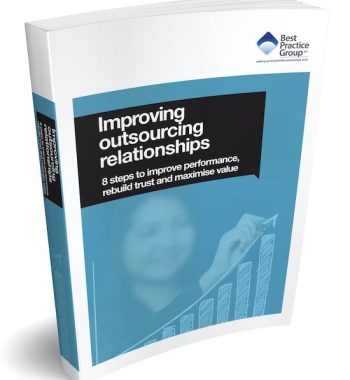
The Salvation Army is an amazing organisation that supports the most vulnerable in our communities. It is now an entity that turns over some £300m, has over 8,000 suppliers, each of which gets a share of the £160m it is reported to spend each year. They are a highly influential force and in the spirit of continuing their ‘force for good’ they are contractually obliging their suppliers to provide not just goods and services, but a ‘community heart’ as well by providing ‘social and community value’.
An Army to Fight Injustice, Poverty and Pain
The Salvation Army was formed by husband and wife team, William and Catherine Booth in 1865. It was designed to encourage “both social and spiritual transformation among society’s most vulnerable and marginalised people”. William and Catherine took a very practical approach to bringing the word and teachings of the Christian church to the people of East London. They ran soup kitchens, put a roof over the heads of the homeless and protected women escaping abuse. These are many of the support services the organisation still undertakes today.
The Salvation Army today has an international membership of approximately 1.7 million in over 130 countries. Their stated mission is: “to preach the gospel of Jesus Christ and to meet human needs in his name without discrimination” while also looking to “actively serve the community, and fight for social justice”. In these present times where the gap in social justice continues to widen, this is an admirable goal to provide social and community value by helping their fellow man, supporting communities, and those less fortunate in society.
The organisation runs thrift stores and charity shops, adult rehabilitation centres, hostels for the homeless, accommodation for the elderly and mothers and babies, children’s homes, and support for the disabled, the unemployed and the vulnerable in society. They run youth groups, disaster relief missions and provide family tracing services, among many other activities.
The Salvation Army is more than a charity – it’s a movement, a hierarchical organisation based on military structures, rules and attire, aspiring to do good across the globe.
Suppliers are Required to Make a Special Commitment to Providing Social and Community Value
In an environment where greater numbers of organisations of scale and influence now require those who work with or for them to reflect their ethos – for example in areas such as ecological protection and carbon neutral aspirations – The Salvation Army has continued to escalate their community cause. If you are a supplier looking to have access to their significant annual spend, then you will need to reflect their ethos for caring for the community and social justice.
They have made the move, therefore, to include a clause in all their supplier contracts that asks suppliers to commit to align the delivery of their services to The Salvation Army’s mission.
Andrew Roper, Procurement Director of The Salvation Army recently said: “[We’re] looking at broader ways we can work with our suppliers and partner with them so they can buy in and join the mission of Salvation Army as opposed to just paying for goods or services.”
He went on to say that they wanted to make sure they were “going beyond the normal KPIs. … We’re not doing projects for procurement’s sake or for saving’s sake, but to make sure that the contracts we put in place really benefit those on the frontline, either those that we’re serving or the officers that support them directly.”
For the charity to succeed in this it will be important for them to continue to work collaboratively with their suppliers, to increase levels of understanding of The Salvation Army’s ethos and how suppliers can demonstrate elements of this ethos to support those in the community who can most benefit from their help. This support will serve the charity well as they look to ensure more of their suppliers sign up to a ‘social and community value’ charter.
Beware the Obligations of Being a ‘Specialist’
A little while ago, we wrote an article titled The Hidden Responsibilities of Social Enterprises & Mutuals for Service Delivery – The Localism Act which touched on the creation of social enterprises and public service mutuals to enable the rise of organisations with a greater social value focus built into their very DNA.
A number of the suppliers to The Salvation Army are smaller social/charitable enterprises. The article highlighted the very real issue that once a social enterprise or mutual gets to a certain size, it will adopt, whether knowingly or not, the status of ‘expert provider’, because of the significant knowledge gap that will exist between supplier and client.
Developing a Circle of Trust
This brings with it a whole set of rules and requirements that they will need to adhere to over the quality of service and care in delivery, which may or may not be written down, but none-the-less they will be held to in law. Smaller organisations may struggle with the legal, compliance and other additional requirements now expected of them due to their expert status. For more information on this subject take a look at a white paper we created on the subject titled Strategic Vendor Responsibilities – Is Your Vendor Really a Trusted Partner?
The Salvation Army’s reported annual spend of £160m makes them an attractive client for suppliers to want to work with. However, if you are going to ‘require’ your suppliers to increase their social support in their working practices, in this case, to evidence added value for community benefit, then you are going to have to evidence the value you bring to the table as a client as well. The first step to achieving this is to build stronger, more trusting relationships with your suppliers as The Salvation Army has, so those suppliers are able to more fully appreciate your reasoning and your expectations of them.
So, how do you build a circle of trust with your suppliers?
1. Starting with a ‘clean slate’
To build trust you first need to be open to giving it to others. No matter who they are, how long you have been working with them, or the reputation they may have developed, the initialisation point of establishing a trusting relationship is to start with a clean slate.
The sins of the past are put to one side and given your new desire to develop more trusting relationships, you’ll make the offer to begin again with the view that those who have not met your standards can change and those you have no experience of can impress you. What’s important is to establish a set of expectations in behaviour and endeavour that will bring supplier and client into alignment, then closely monitoring this to steer those who fall short back on course.
2. Evidence your trustworthiness
To inspire trust from others you must first show that you are trustworthy. If you want your suppliers to act in a particular way, to create a particular working environment or to deliver on their promises, then you must first show that you can do just that.
In the case of The Salvation Army, it’s clear what their intent is as a charity, but actions and words need to match up, so they will continue to evidence to their suppliers that they live up to their high aspirations before expecting suppliers to do the same. Set the bar and hold others to it.
3. Ambiguity is the enemy of trust
Many disagreements in strategic/complex supplier relationships originate at a point of ambiguity. This may be a lack of clarity in the requirements, contract, in discussions, instructions or communications. Allowing ambiguity into the mix will reduce your chances of establishing a mutually trusting relationship.
Clarity, though, is not always enough, as misunderstandings can still creep in – it’s also important, therefore, to build the sort of relationship that means you can identify, inform and rectify any issues in a quick and amicable fashion. Leaving misunderstandings to fester can only lead to mistrust, the very opposite of the environment you are looking to foster.
4. Take trust to the next level
While it’s important to be open-minded to trust, to evidence your trustworthiness, and to avoid misunderstandings which could misalign the trust in your relationship, you should also aspire to take things to the next level – a relationship where trust is mutual and accepted.
Let your suppliers know they are trusted once they have earned your trust, and reward them for the things they do that evidence why they are worthy of your trust. Place trust at the centre of your relationship and the innovation, productivity and commitment that this will generate will be reward enough.
Conclusion
The Salvation Army’s move to surround the organisation with suppliers that themselves show similar drive and commitment to supporting the poor, the vulnerable, and the needy in the world, should be applauded. This is simply an expansion of the ethos the organisation was founded on.
However, there are likely to be some issues gaining a sustained level of commitment from some suppliers when it is recognised that there will be costs involved, then to ensure that these suppliers uphold this commitment for more than the short term.
To achieve this The Salvation Army will need to evidence that to do so is worthwhile for suppliers and to either attract suppliers similarly committed to social value added behaviours or to draw them into a relationship where their aspirations become aligned with those of The Salvation Army.
When you create a relationship with your suppliers are you hoping that they will align with your expectations of them? Or are you strategising on how you can ensure that they will?

